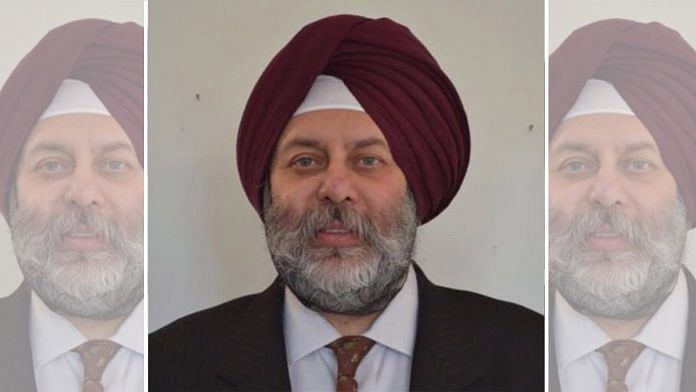New Delhi: Recent events in Nepal show that the country remains in a “topsy-turvy” situation where alliances are too easily available and politics is plagued by “rent-seeking” behaviour, former Indian ambassador to Nepal Manjeev Singh Puri said Wednesday.
“Nepal’s politics has remained the way it always was i.e. topsy turvy. Anybody is capable of getting into an alliance, no subject matter can be left out, the usual business of rent-seeking continues,” he said at the launch of the book, ‘Constitutional Development of Nepal’, by Dr Rakesh Kumar Meena, assistant professor at DAVPG College, Banaras Hindu University, Varanasi.
The virtual event was hosted by the Indian Council of World Affairs (ICWA).
Referring to the growing Nepal-China ties, Puri said: “Openings to another country, simply to have advantage vis-a-vis India, remain the order of the day.”
Last May, Nepal had revised its map with new borders that showed some disputed areas within its territory, drawing strong criticism from New Delhi. Disputed territories along the strategic Himalayan route, like the Lipulekh pass, have security implications for India as they could serve as points of Chinese incursion.
Nepal’s politics has also been in a state of flux since last December, when Prime Minister K.P. Sharma Oli dissolved the country’s Parliament and declared fresh polls just two years before the next general elections. On 23 February this year, Nepal’s Supreme Court called the dissolution unconstitutional and restored the Parliament.
Despite calls for his resignation, Oli has not stepped down. Meanwhile, opposition parties have not opted for no-confidence motions or forming alliances among themselves to topple the Oli government. Some have even secured power-sharing deals with the latter.
The situation was further complicated with the Supreme Court’s verdict on 7 March, which scrapped the Nepal Communist Party (NCP) and revived its initial factions — the CPN-UML and the Communist Party of Nepal (Maoist Centre).
Also read: Nepal’s latest crisis and its unstable political history with 49 PMs in 58 years
Nepal’s ‘convoluted Constitution’ to blame
Quoting an Indian journalist that he did not name, Puri said Nepal’s “convoluted Constitution” is to blame for the situation. “It has neither a first-past-the-post system for its House of Representatives, nor does it have a pure system of only proportional representation.”
He added: “It is a system that is prone to not being stable.”
In the first-past-the-post or simple majority system, the candidate with the highest number of votes in a constituency is declared the winner. India uses this political system to elect members to the Lok Sabha and state assemblies. Nepal follows a mixed parallel voting system.
In 2015, the country adopted a new constitution that made the republic a federal state. It also mandated that 60 per cent of representatives will be chosen through a first-past-the-post system, while the remaining 40 per cent will be elected through the proportional representation system. In the latter system, the distribution of seats corresponds with the proportion of the total votes cast for each party.
Puri said while proportional representation lends itself to a degree of inclusion, “inclusion is not the order of the day” in Nepal — “because of the way they treat ethnic groups in the country and those who have been historically disadvantaged.”
The new constitution was not well received by many ethnic groups because the percentage of Parliament seats under the proportional representation system was reduced when it was enforced.
The PR system is known to have historically helped members of indigenous and low-caste groups get elected. In eastern Terai, Madhesi communities, who are ethnically and socially close to Indians across the border, have also complained of facing discrimination by the Nepalese state.
“Institutionally, they [Nepal] made progress but maybe the politics wasn’t ready for it,” said Puri.
During the event, S.D. Muni, professor emeritus from Jawaharlal Nehru University, also pointed out that women, despite having one-third reservation of seats at all three levels of government, have not been satisfied with the government’s policies.
For example, many took to streets in February this year to protest a proposed law that requires women below 40 to get consent from male guardians to travel abroad.
(Edited by Rachel John)
Also read: Nepal must become self-dependent. China’s undeclared trade blockade hurts Kathmandu



